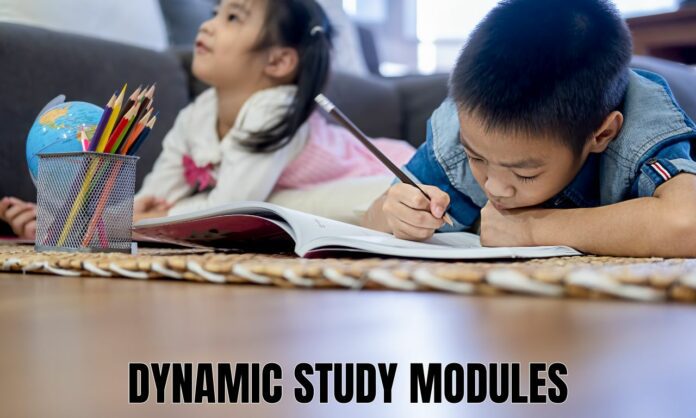Dynamic Study Modules (DSM) represent a significant innovation in educational technology, designed to enhance learning efficiency and retention. These interactive tools are increasingly utilized in various educational sectors, from secondary education to higher learning institutions. Let’s delve into the primary function of Dynamic Study Modules, breaking down their components and benefits step by step.
Table of Contents
1. Adaptive Learning Technology
At the core of Dynamic Study Modules is adaptive learning technology. This technology tailors the learning experience to the individual needs of each student. By continuously assessing a student’s performance and understanding, DSM adjusts the content and difficulty level in real time. This personalized approach ensures that students spend more time on concepts they find challenging and less on those they have already mastered.
Key Features:
- Real-time assessment: Continuously evaluates student responses.
- Personalized content: Adjusts difficulty and content based on performance.
- Targeted practice: Focuses on areas where the student needs improvement.
2. Spaced Repetition
Dynamic Study Modules leverage the principle of spaced repetition, a learning technique that involves reviewing information at increasing intervals. This method has been proven to enhance long-term retention of information. DSM automatically schedule reviews of previously learned material, reinforcing knowledge just as it begins to fade from memory.
Key Features:
- Memory reinforcement: Revisits content at optimal intervals.
- Long-term retention: Aids in transferring information to long-term memory.
- Automated scheduling: Determines the best times for review based on individual learning patterns.
3. Immediate Feedback
One of the standout features of Dynamic Study Modules is the provision of immediate feedback. When a student answers a question, they receive instant feedback on their performance. This immediate response helps to correct misunderstandings and reinforces correct knowledge, enhancing the learning process.
Key Features:
- Instant feedback: Provides explanations for correct and incorrect answers.
- Error correction: Helps students understand mistakes and learn from them.
- Reinforcement of knowledge: Confirms correct answers to build confidence.
4. Engagement and Motivation
Dynamic Study Modules are designed to be engaging, using various interactive elements such as quizzes, flashcards, and games. This interactive approach helps to keep students motivated and invested in their learning. The gamification elements, such as earning points or badges, add a layer of motivation, making the learning process more enjoyable.
Key Features:
- Interactive elements: Incorporates quizzes, flashcards, and games.
- Gamification: Uses points, badges, and rewards to motivate students.
- Engagement: Keeps students interested and actively participating.
5. Data-Driven Insights
Teachers and educators benefit from the data-driven insights provided by Dynamic Study Modules. These tools collect and analyze data on student performance, offering valuable information on areas where students excel or struggle. Educators can use this data to tailor their teaching strategies and provide additional support where needed.
Key Features:
- Performance analytics: Tracks student progress and identifies trends.
- Tailored instruction: Helps educators customize their teaching approach.
- Support and intervention: Identifies students needing extra help.
Conclusion
The primary function of Dynamic Study Modules is to create a personalized, adaptive learning experience that enhances knowledge retention, improves student engagement, and provides valuable insights for educators. By leveraging adaptive learning technology, spaced repetition, immediate feedback, engaging content, and data-driven insights, DSM offers a comprehensive tool for modern education. These modules not only support students in mastering content more effectively but also empower educators to facilitate a more tailored and impactful learning environment.

